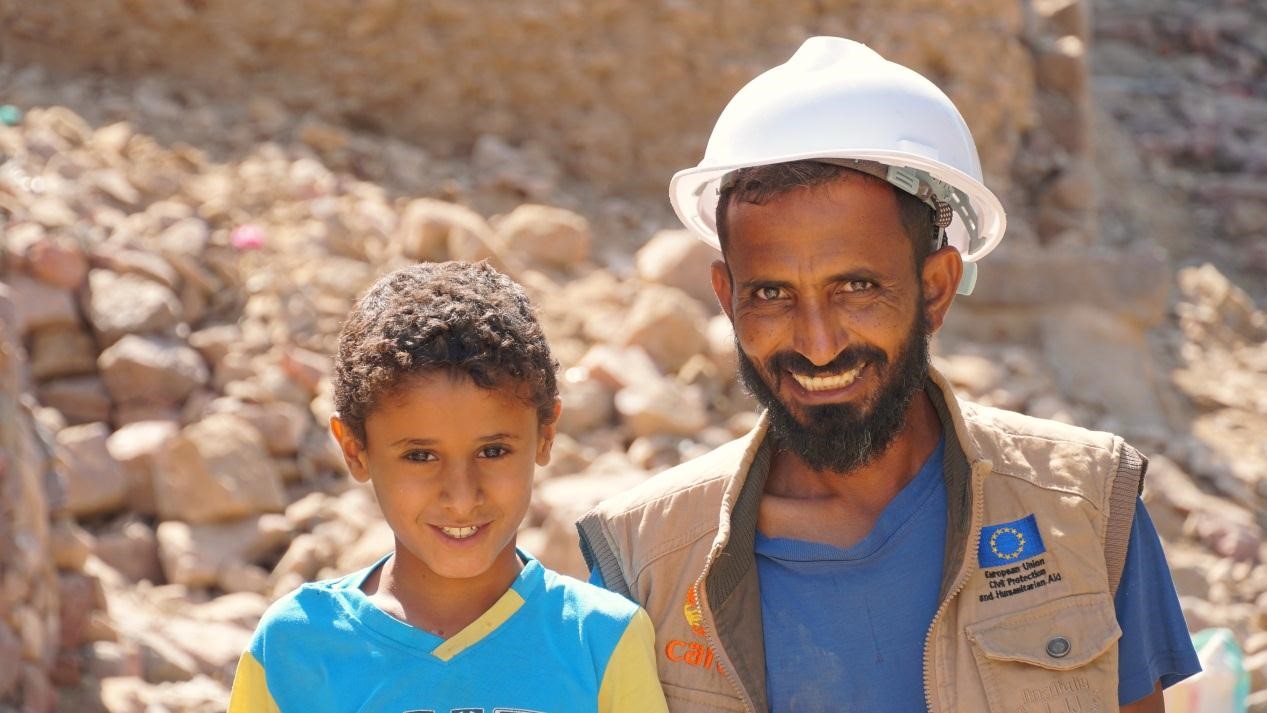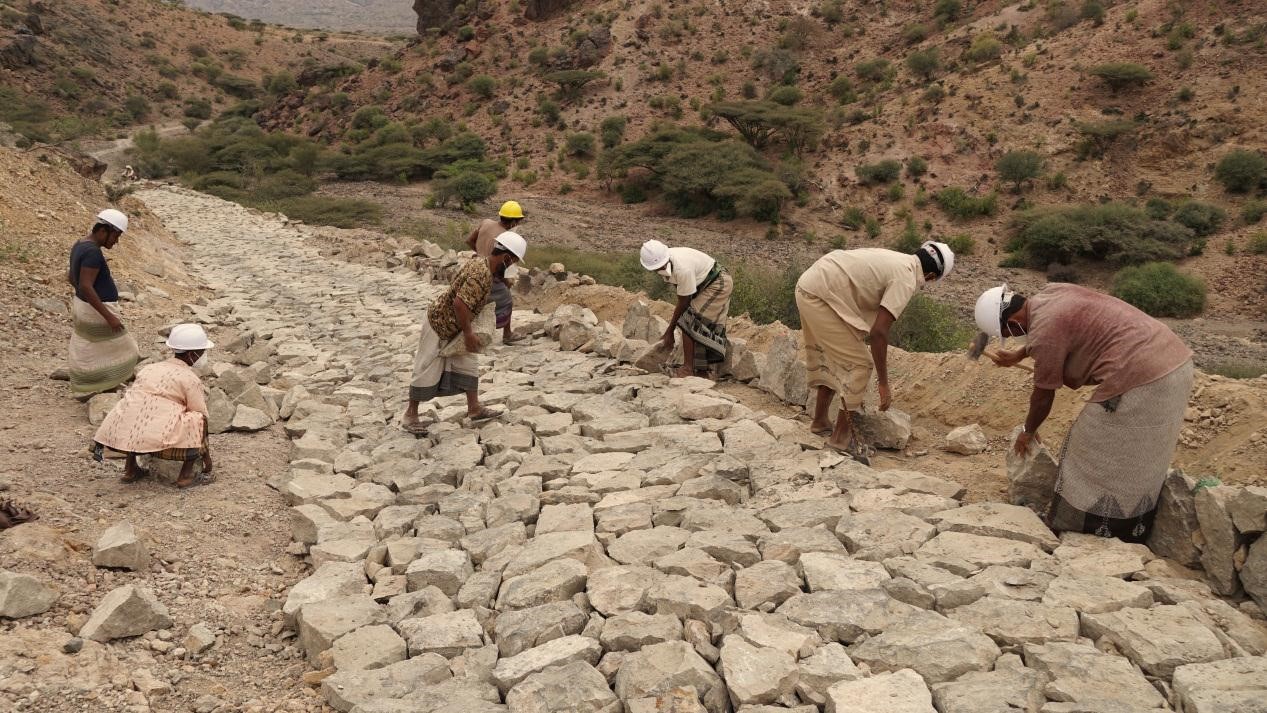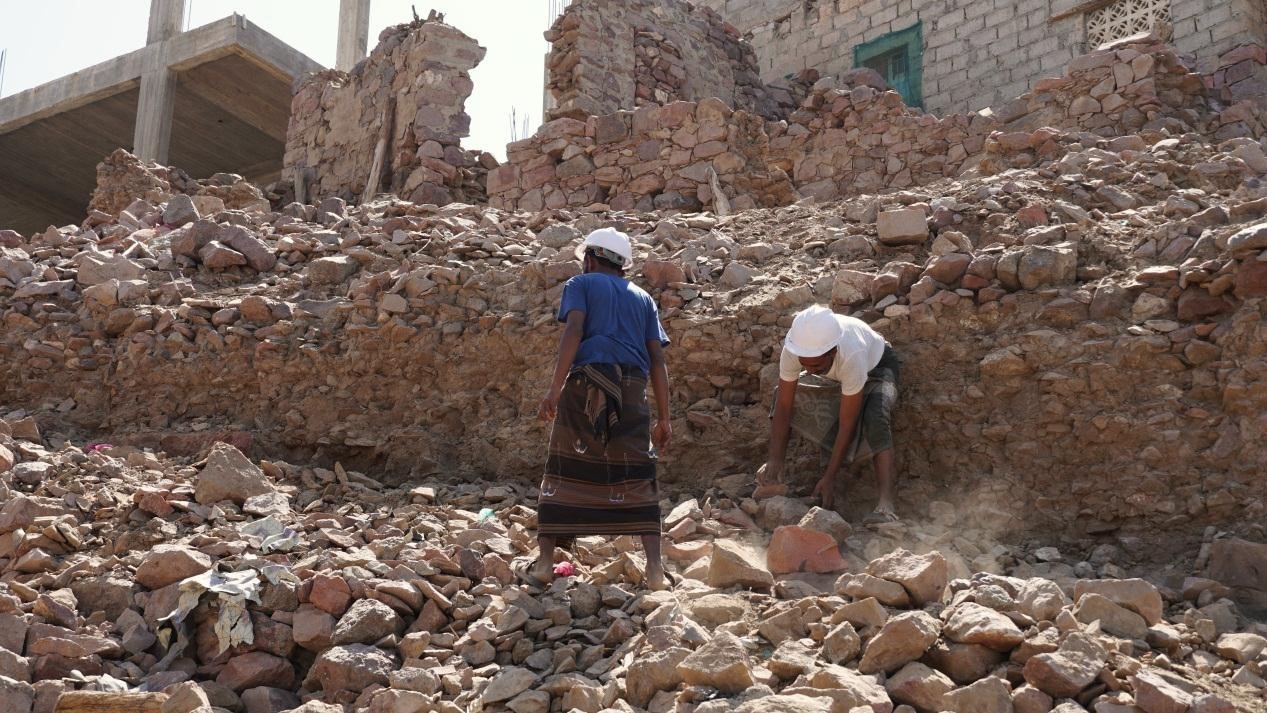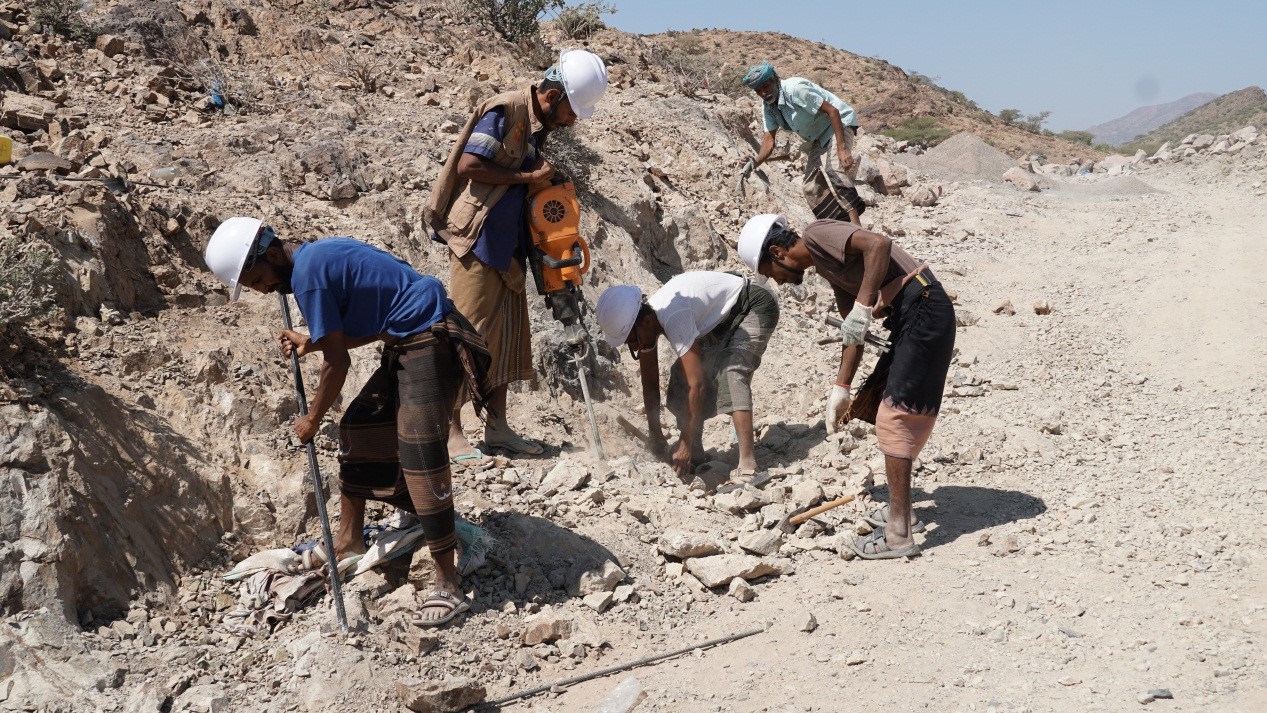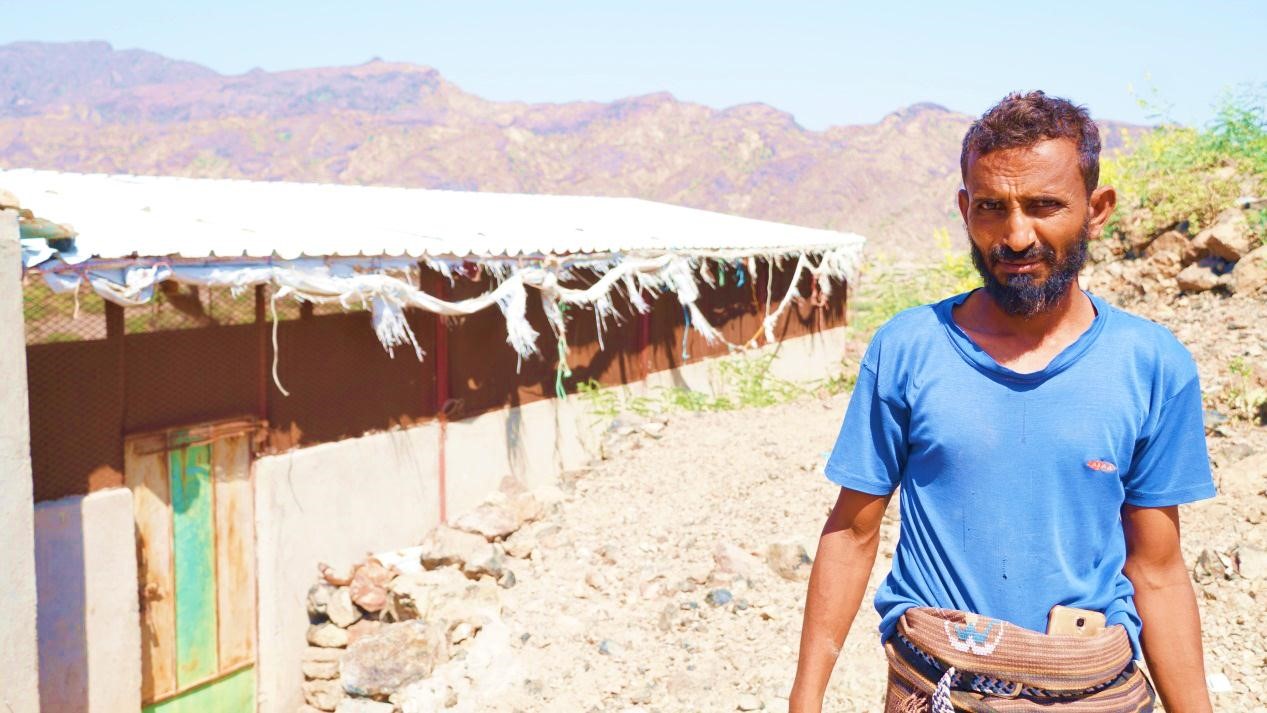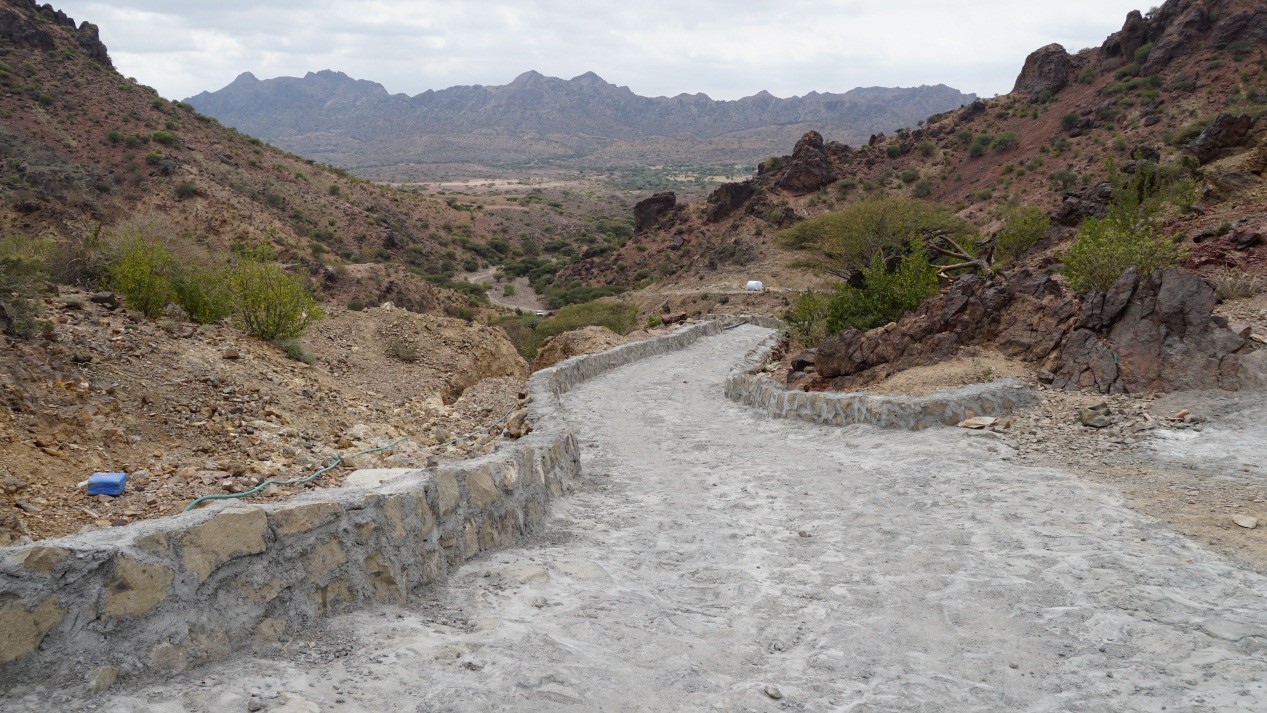Yemen continues to be mired in one of the world’s worst humanitarian and development crises due to a conflict that has been ongoing since 2015. This conflict has not only brought tragic loss of life but is also having devastating impact on livelihoods and the social fabric, causing at least five million Yemenis to teeter on the brink of famine. Millions of Yemenis continue to suffer from the conflict, trapped in poverty and with little possibility for jobs and livelihoods, resulting in widespread reversals of development progress that had been achieved prior to the outbreak of the conflict.
Abdul Muttalib, a 51-year-old father of five children, is from Al-Madarbah district, one of the hardest-hit districts in Lahj Governorate, known for its grinding poverty and scarcity of services and clean water. In Shabo area within this district, hundreds of families have been struggling to reach service facilities and markets, access to which could take two hours to reach on foot, cutting across long mountainous and treacherous roads. Even donkeys accustomed to hard journeys cannot endure more than a year of going back and forth every day while carrying jerry cans of water and food products back to the village.
“The only road connecting our remote village has been unpaved and harmful to our safety. Every time I drive, I’ve been afraid of falling from the top of the mountain. Besides, transportation is expensive which we can’t afford,” says Abdul Muttalib Chotri.
Through interaction with the community, it is clear that the difficulty of the rough roads and the lack of job opportunities are two main common problems that residents of Mudaraba district have been worrying about.
“With difficult access and unpaved roads, it was tragic that women and children in this district had many accidents on the road while fetching water or going to schools and health facilities,” says Mutee Abdo Muhammad, 49, a local resident. “The cost of transporting goods from the market to this area is rather expensive, so the goods were transported either on our shoulders or on the backs of donkeys.”
